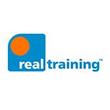Building services engineer
Building services engineers are responsible for ensuring the safe and reliable operation of services within buildings, including electrical and mechanical
Your role as a building services engineer is to design, install and maintain the services that allow a building to do what it's designed to.
You'll maintain a range of services in a building, including:
- acoustics
- health and safety
- heating
- lifts and escalators
- lighting
- power and supply
- security.
Sustainability is an important issue, and you may be involved in designing, developing and managing new technologies to help reduce the carbon emissions of buildings.
Types of building services engineer
You may specialise in an area such as:
- electrical engineering
- façade engineering
- heating, ventilating, refrigeration and air conditioning
- lighting
- mechanical engineering
- public health
- sustainable and renewable energy.
Responsibilities
As a building services engineer, you'll need to:
- negotiate and develop project contracts and agree these with clients, if working in consultancy and putting out tenders
- commission, organise and assess the work of contractors
- work with detailed diagrams, plans and drawings
- use specialist computer-aided design (CAD) software and other resources to design the systems required for the project
- use and develop Building Information Modelling (BIM) to ensure systems are coordinated in a complex construction or refurbishment project
- manage and forecast spend, using whole life cycle costing techniques, ensuring that work is carried out within budget and energy-efficient systems are implemented
- design site-specific equipment as required
- oversee and supervise the installation of building systems and specify maintenance and operating procedures
- monitor building systems and processes
- make decisions about expired systems equipment and the appropriate location of new equipment
- liaise closely with other professionals, including structural engineers, builders, architects and surveyors and in-house project teams
- attend a range of project group and technical meetings
- ensure that the design and maintenance of building systems meets legislative and health and safety requirements
- advise clients and architects on energy use and conservation in a range of buildings and sites, with the aim of minimising the site's environmental impact and reducing its carbon footprint
- work on a variety of projects within a short period of time.
Salary
- Starting salaries for graduate building services engineers are generally around £28,000.
- CIBSE reports that the current average salary for an experienced engineer is £38,600.
- Having chartered (CEng MCIBSE) or incorporated (IEng ACIBSE) status will generally increase your level of pay and you can expect to earn up to £50,000, and considerably more with a high level of experience or as a partner.
Rates of pay can vary substantially across different regions. Pay rates are generally similar to those within civil engineering and are affected by the current economic climate of the construction industry, as is the availability of jobs. At present, there's high demand for construction professionals.
Income data from the Chartered Institution of Building Services Engineers (CIBSE). Figures are intended as a guide only.
Working hours
It's common to work more than average office hours in this role, but this shouldn't include weekends or shift work. However, you may be required to be on standby at times, as part of an emergency call-out service.
Part-time work is often possible as many contract staff are employed to respond to peaks in the workload.
What to expect
- Your time will usually be divided between office and site work, with the amount of time you dedicate to each varying depending on your role and sector. Some jobs are mainly office-based, where much of the work is centred around design and estimating, and only a short amount of time is spent on-site planning and co-ordinating installation.
- You could work on a range of building types, from brand new developments to ancient heritage properties. There are many opportunities to develop specialist skills.
- Self-employment and freelance work are sometimes possible. Those with chartered status and extensive experience may establish themselves as independent consultants.
- The profession is traditionally separated into electrical and mechanical roles, but the job is becoming increasingly multidisciplinary and diverse, with opportunities to specialise in many areas, and a current emphasis on low-carbon technologies.
- Overseas work or travel is available, with UK-qualified building services engineers in demand across the globe.
Qualifications
Entry into building services engineering is typically via an engineering qualification. A degree in one of the following subjects will be useful:
- building services engineering
- built environment engineering
- electrical engineering
- energy engineering
- mechanical engineering
- other engineering degrees.
Engineering or technology HNDs/foundation degrees can fulfil all the academic requirements to become an engineering technician (EngTech), or part of the requirements to gain incorporated engineer (IEng) status. Appropriate further learning to degree level would then be needed to progress further in the job.
Chartered engineer (CEng) or incorporated engineer (IEng) status can be gained through membership of the Chartered Institution of Building Services Engineers (CIBSE), or other engineering institutions licensed by the Engineering Council. For chartered status, an accredited first degree in engineering or technology, plus an appropriate accredited MEng or an accredited integrated MEng degree are usually required. Search for accredited degrees at Engineering Council - Accredited Course Search (ACAD).
Individuals with qualifications not listed on the Engineering Council website are assessed individually and may still qualify for incorporated or chartered status.
CIBSE offers student membership to those on relevant courses, which can lead to valuable networking opportunities at industry events as well as discounted prices on publications and other resources.
Skills
You'll need to show evidence of:
- problem-solving ability
- analytical skills
- communication skills
- your ability to work as part of a team
- a good grasp of numeracy
- time-management
- 3D visualisation, computer modelling and IT competence.
Work experience
Pre-entry experience is not formally required, but if you can gain relevant work experience during the holidays or through industry sponsorship, this will enhance your job applications and help with making contacts in the sector.
Advertisement
Employers
Building services engineers can find opportunities with a variety of employers, including:
- consultancies, providing services such as building services design, sustainable energy systems, installation inspections, specification and cost control to a variety of client companies
- multidisciplinary construction companies, requiring specialist design and planning skills for a range of projects
- major house building companies, advising on energy efficiency in design
- universities and other educational institutions, requiring ongoing building systems support and maintenance in addition to occasional customised design work
- local authorities, requiring systems maintenance and design support across a range of facilities
- the public health and healthcare sectors, including hospitals and care homes
With significant experience, it’s possible to work as a self-employed consultant.
Look for job vacancies at:
Specialist recruitment agencies, such as Hays Building Services, also handle vacancies and short-term contract opportunities.
Professional development
You can work towards becoming a professionally registered building services engineer with the Engineering Council. To do so, you must be a member of a licensed institution, in this case CIBSE.
You'll need to prove that you have the necessary competencies and knowledge required for CEng or IEng status, usually through relevant qualifications and experience. Consult CIBSE for more information.
It's important to keep up with changes in technology and processes in building services engineering, as these are developing all the time. There are many helpful short courses, conferences and workshops available. Professional bodies, such as CIBSE, and trade associations, such as the Association for Consultancy and Engineering (ACE), provide opportunities in areas including:
- design legislation
- changes in standards
- amendments to UK building regulations
- UK/EU health and safety regulations.
CIBSE also has the Young Engineers Network (YEN), which consists of regional centres that provide a forum and support network for engineers new to the profession.
Career prospects
Progression routes within the industry are usually straightforward. When working for client/end-users or contractors, career progression is usually from engineer to manager.
In consultancy, usually more in companies rather than partnerships, career progression typically follows the pattern of:
- graduate engineer
- project engineer
- associate
- partner or director
- senior partner or managing director.
However, career patterns aren't fixed, and your development is determined to an extent by your choice of employer, its size and your chosen specialisation.
It's important to be strategic at an early stage when choosing the type of qualification to take and the areas in which to gain practical experience, as they may lead on to your specialist area. Building services degrees with a general focus provide a useful overview of the whole sector, while other types of degree, such as mechanical or electrical engineering, allow the development of more specialised skills.
Promotion is dependent upon gaining professional qualifications and appropriate experience, so it's advisable to gain relevant qualifications and become a member of the appropriate professional body as early as possible. Chartered and incorporated engineer status is recognised in the UK and overseas.
There is currently a skills shortage in the engineering sector and the focus on 'green engineering' and drive for net zero means there is rapid growth and an increase in jobs.
Alternative careers
Related jobs and courses




graduate scheme
Land Graduate - Gateshead
- Bellway Homes (11 other jobs)
- £27,001-£29,500
- Gateshead

